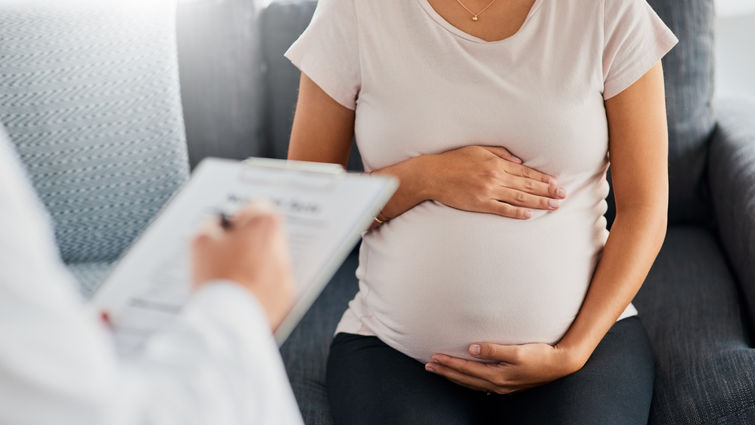
As a pregnant woman or a woman planning to become pregnant in the near future, the decision whether to receive a vaccination to protect themselves from COVID-19 is difficult.
Our experts at Loma Linda University Health are highly recommending careful consideration for vaccination by weighing your own health risks at this time.
In this incredibly difficult time, Courtney Martin, DO, FACOG, medical director of maternity services and Ciprian Gheorghe, MD, PhD, a maternal fetal medicine specialist, hope to provide some clarity and guidance with this weighty decision.
What we know about COVID-19
The risk of COVID-19 in pregnancy can be very serious, Martin says.
“Pregnant individuals have higher rates of ICU admission, respiratory failure and even death,” she says. “There are likely higher rates of premature birth, cesarean section and other pregnancy and maternal complications.”
According to Martin, at this point, it is unclear why some pregnant women who contract COVID-19 remain asymptomatic while why others become very ill. However, physicians have seen that COVID-19-positive women over the age of 30 are generally those who required respiratory support.
“We still believe that obesity, diabetes and hypertension may play a role in risk increase for needing greater respiratory support while having COVID-19,” she says.
Your options
- Get a COVID-19 vaccine as soon as it is available
- Wait for more information about the vaccines and any effects on pregnancy
“There isn’t data surrounding the effects of the vaccination on pregnancy because pregnant women weren’t included in any studies,” Gheorghe says. “Because our data is so limited, we think it’s especially important for pregnant women to weigh the risks and the benefits.”
According to Gheorghe, the two distinct benefits of receiving an mRNA COVID-19 vaccine are:
- The COVID-19 vaccine will prevent up to 95% of COVID-19 infections.
- Because the vaccine is an mRNA vaccine and does not contain any part of the virus, the COVID-19 vaccine cannot give you COVID-19.
The two distinct risks include:
- The COVID-19 vaccine has not yet been tested in pregnant women.
- People getting the vaccine will probably have some side effects such as injection site reactions, fatigue, headache, chills, joint pain and fever.
What else should you think about to help you decide
“Make sure you understand as much as you can about COVID-19 and about the vaccine before you make a decision,” Martin says. “Nobody can decide what’s best for you like you can. But you can seek guidance and ask a trusted source, like your midwife or doctor.”
According to Martin, the bottom line on making the decision is to think about your own personal risk, essentially, are you at higher risk for contracting COVID-19 or are you not at higher risk.
The risks of getting sick from COVID-19 are higher if:
- You have contact with people outside your home
- You are 35 years old or older
- You are overweight
- You have other medical problems such as diabetes, high blood pressure, or heart disease
- You are a smoker
- You are a racial or ethnic minority, or your community has a high rate of COVID-19 infections
- You are a healthcare worker
“If you are at higher risk of contracting COVID-19, it probably makes sense to get the vaccine,” Martin says.
However, you might consider forgoing the vaccine for now if you are not at higher risk for COVID-19 and:
- You are always able to wear a mask
- You and the people you live with can socially distance from others for your whole pregnancy
- Your community does not have high or increasing COVID-19 cases
- You think the vaccine itself will make you very nervous (you are more worried about the unknown risks than about getting COVID-19)
- You have had a severe allergic reaction to a previous vaccine
“If you are not at higher risk, then it might make sense for you to wait for more information,” Martin says.
Learn more about receiving the COVID-19 vaccination by visiting our website.
